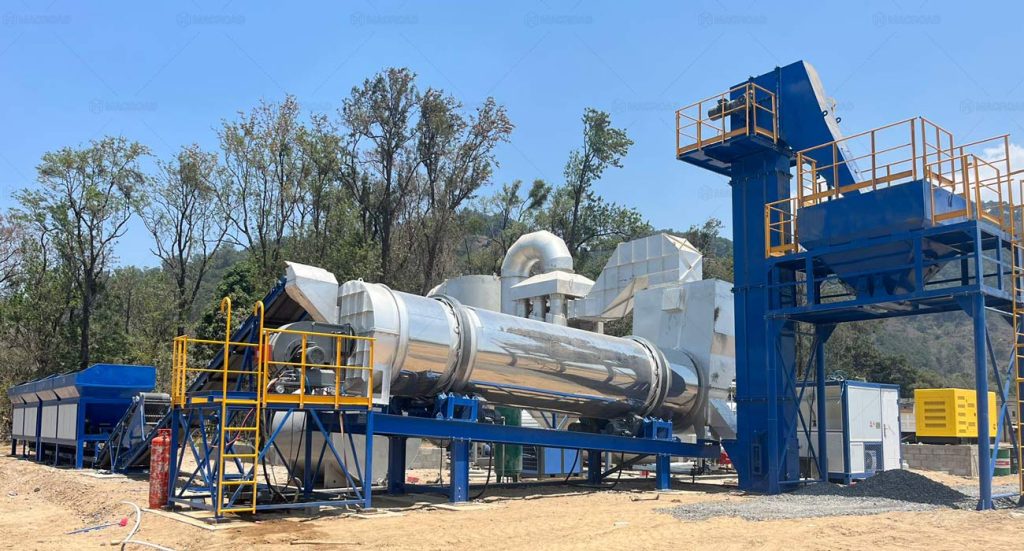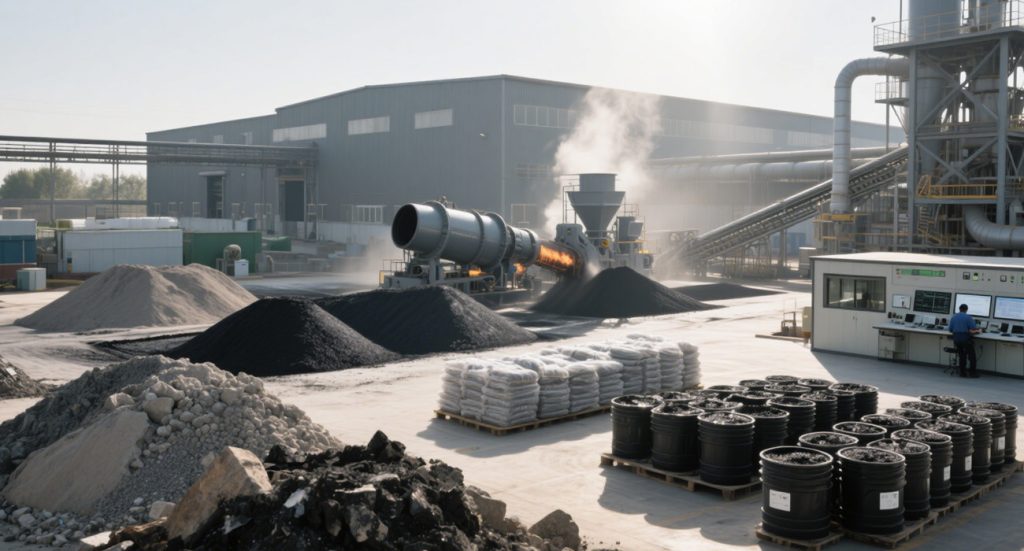A significant amount of old asphalt pavement waste is generated during municipal roads construction, necessitating the need for effective recycling solutions. Asphalt recycling plants play a crucial role in processing this waste into recycled asphalt for reuse in production. To ensure that the strength and durability of recycled asphalt meet the service demands of municipal roads, it is essential to optimize the production process. This article discusses key strategies, such as accurately controlling heating temperatures and adjusting the mixing ratios, to maximize the utilization of old materials while reducing raw material costs.

Understanding the Importance of Recycling Asphalt
The recycling of old asphalt pavement not only helps in reducing waste but also provides a sustainable solution for road construction projects. By processing this waste into recycled asphalt, asphalt recycling plant can significantly lower material costs and contribute to environmental conservation.
However, the effectiveness of recycled asphalt depends on the production process used in the recycling plants. It is critical to ensure that the recycled material retains sufficient strength and durability to meet the rigorous demands of municipal roads. This requires careful attention to the methods used in recycling, particularly regarding the handling of old materials.

Controlling Heating Temperatures to Prevent Aging
One of the critical aspects of optimizing the production process in asphalt recycling plants is accurately controlling the heating temperature of old materials. When asphalt is heated, it can undergo aging, which adversely affects its properties and performance.
To combat this issue, recycling plants must implement precise temperature control mechanisms. By heating old asphalt materials to the optimal temperature, operators can avoid excessive aging and ensure that the material retains its desirable characteristics. This not only enhances the quality of the recycled asphalt but also contributes to the longevity of the pavement once it is applied in municipal roads construction.

Adjusting Mixing Ratios for Optimal Performance
Another essential factor in the production of recycled asphalt is the adjustment of the mixing ratio between new materials and recycled materials. Finding the right balance is crucial for achieving the desired strength and durability of the final product.
Incorporating a higher percentage of recycled materials can lead to cost savings, but it is essential to ensure that the resulting mixture meets the required performance standards. By conducting thorough testing and analysis, asphalt recycling plants can determine the optimal mixing ratios that maintain the structural integrity of the asphalt. This approach maximizes the utilization of old materials while ensuring that the recycled asphalt is suitable for municipal roads.

Implementing Quality Control Measures
To further enhance the asphalt production process, asphalt recycling plants should implement stringent quality control measures. Regular testing of the recycled asphalt can help identify any inconsistencies in strength and durability, allowing for timely adjustments in the production process.
Establishing a robust quality assurance program not only ensures compliance with industry standards but also builds trust with stakeholders involved in municipal roads construction. By consistently delivering high-quality recycled asphalt, recycling plants can strengthen their reputation and foster long-term partnerships with construction agencies.
Conclusion: Advancing Recycled Asphalt for Sustainable Road Construction
In conclusion, optimizing the production processes of asphalt recycling plants is vital for transforming old asphalt pavement waste into valuable recycled asphalt. By accurately controlling heating temperatures and adjusting mixing ratios, these plants can ensure that the recycled asphalt meets the demands of municipal roads construction while maximizing the utilization of old materials.
Implementing quality control measures further enhances the reliability and performance of recycled asphalt, contributing to sustainable road construction practices. By focusing on these strategies, asphalt recycling plants can play a pivotal role in reducing material costs and promoting environmental sustainability in the industry.
